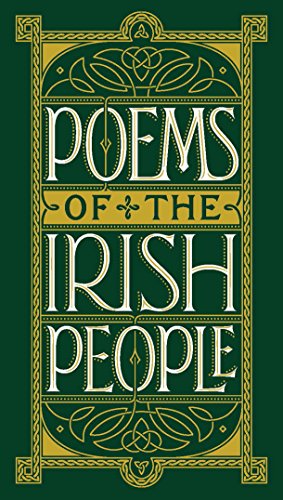
This little book of Irish poems has been really fun to read. I started it on a sick day when I wanted something simple to read, and I’m so glad I did. It’s a small, pocket-sized book with 65 poems by about forty-six authors named authors, 2 translators, and a few anonymous authors. Most of the authors I hadn’t heard of, but you may recognize William Butler Yeats among the names. Perhaps some of these authors only wrote a handful of poems. I’m glad they were included in this little volume. Here is the list of features authors (including links to the poems I posted).
- Anonymous
- Cecil Frances Alexander
- William Allingham
- Edmund John Armstrong
- John Banim
- Ethna Carbery
- William Carleton
- John Keegan Casey
- Andrew Cherry
- Nora Chesson
- Luke Aylmer Conolly
- Thomas Osborne Davis
- Aubrey de Vere
- William Drennan
- Samuel Ferguson
- Ellen Forrester
- Alice Furlong
- Eva Gore-Booth
- Alfred Percival Graves
- Stephen Lucius Gwyn
- Katharine Tynan Hinkson
- Nora Hopper
- John Kells Ingram
- Thomas Caulfield Irwin
- James Joyce
- Rose Kavanagh
- Carles Joseph Kickham
- William Larminie
- Emily Lawless
- Francis Ledwidge
- Samuel Lover
- Francis Sylvester Mahoney
- Thomas D’Arcy McGee
- Thomas Moore
- Alice Mulligan
- Ellen O’Leary
- James Orr
- Seems O’Sullivan
- George Nugent Reynolds
- T.W. Rolleston
- Dora Sigerson Shorter
- John Millington Synge
- John Todhunter
- Edward Walsh
- John Walsh
- Lady Wilde
- William Butler Yeats
- translator Michael Cavanagh
- translator James Clarence Mangan